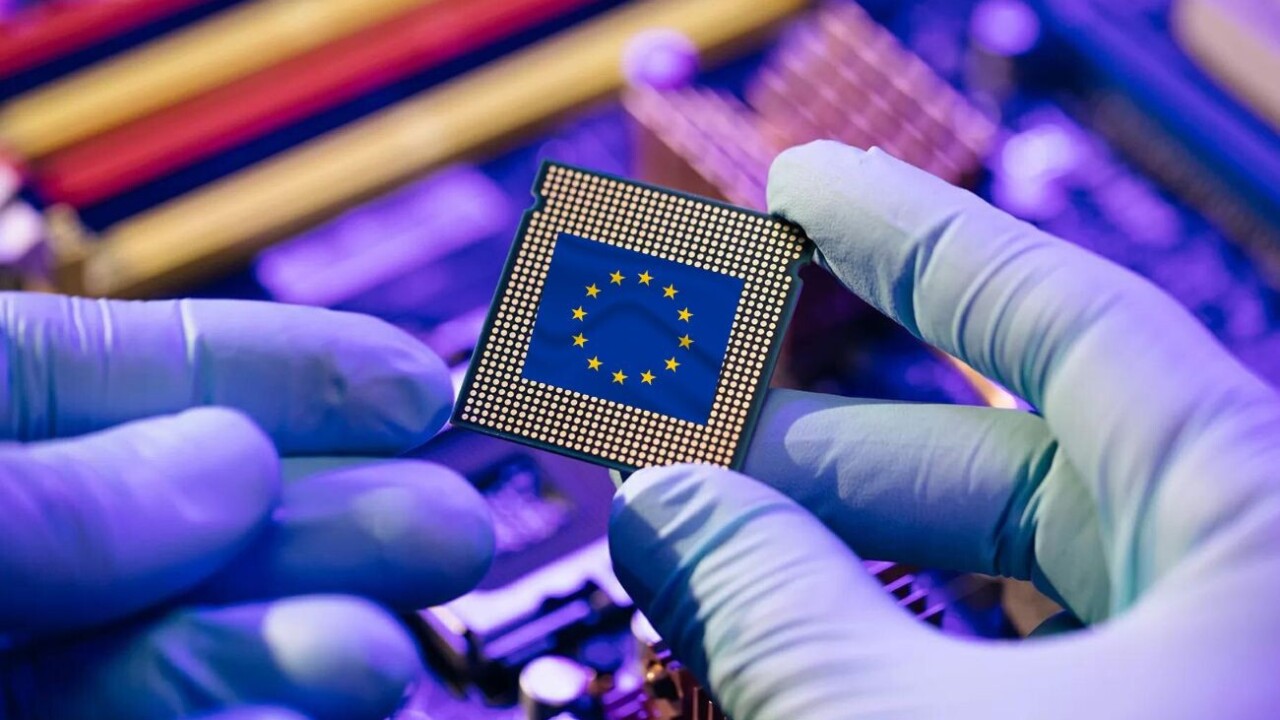
Story by
Siôn Geschwindt
EU member states reached a provisional agreement on Tuesday for a €43 billion plan to bolster domestic production of semiconductor chips — essential components in everything from phones to cars and refrigerators.
The EU Chips Act, proposed by the Commission in February of last year, looks to double the bloc’s global market share in semiconductors from 10% to 20% by 2030.
The act also seeks to build resilience in Europe’s semiconductor supply chain, which is highly dependent on a limited number of foreign suppliers.
“Chips are essential for all our digital and digitised products,” said Margrethe Vestager, Danish politician and executive vice-president for a Europe Fit for the Digital Age. Vestager said she believes that the agreement will help “secure the supply of innovative semiconductors in Europe” and make Europe’s chip industry more competitive.
Three pillars
The Commission has proposed three key pillars to deliver on the Act. The first — the Chips for Europe Initiative — aims to support “large-scale technological capacity building” and “bridge the gap” between research and industry. The initiative will be supported by combined investments from the union, member states, and the private sector, including €6.2 billion in public funds.
The second pillar will incentivise public and private investments in manufacturing facilities for chipmakers and their suppliers. This will contribute to the overall public investment in the sector, which is estimated at €43 billion.
The third pillar is for a monitoring and crisis response system to anticipate supply shortages. The EU member states and the Commission will develop a joint coordination programme to boost collaboration, monitor supply, estimate demand, and trigger a “crisis stage” if necessary.
Thierry Breton, EU Commissioner for Internal Market, said the Chips Act will enable the mobilisation of “considerable public funding” and a supportive regulatory framework to turn these three pillars “into reality.”
Securing future supply
Semiconductor chips are the building blocks of digital products. Demand for them is expected to double between 2022 and 2030, with the industry predicted to reach a global market value of $1 trillion within the same timeframe.
But several vital tech sectors in the EU have been suffering from supply shortages in semiconductor chips, in part because they rely on just a few suppliers and countries, in particular Asia for supply, and the US for design.
This dependency means Europe’s chip reserves in some sectors like the automotive industry could run out in just a few weeks if disrupted. Shortages have also led to price-hikes for electronics, lengthier delivery time for consumer products, and a decrease in manufacturing capacity.

Against this backdrop, and as Europe looks to scale more sustainable but chip-intensive technologies, like EVs, securing future supply of semiconductor chips has become a top priority for the bloc — hence the Chips Act.
Ebba Busch, Swedish Minister for energy, business, and industry, said she believes the Act will “secure the EU’s resilience in turbulent times” and transform the EU’s “dependency into leadership, vulnerability into sovereignty, and expenditure into investment.”
Since the proposal for the Chips Act was announced, investment has already reached between €90-100 billion, including for projects such as Intel’s giant €17bn chip factory planned for Magdeburg, Germany. Now it has winded its way through the EU’s legislature, the Act is expected to boost investment further, and create the skills and knowledge base necessary to reach the bloc’s ambitious targets.
However, many other regions have their own semiconductor strategies that risk undermining the EU’s vision. The US has its $52 billion CHIPS for America Act, and South Korea has pledged hundreds of billions of dollars to boost its chips sector.
To secure its market share, the bloc should play to its chipmaking strengths, Christopher Cytera, research fellow at the Centre for European Policy Analysis, told Reuters. For instance, Dutch firm ASML is the sole supplier of extreme ultraviolet lithography (EUV) machines, and Germany’s Siemens develops EDA software used in the designs of integrated circuits.
Both firms, and many others like them, appear to be eligible for funding under the European Chips Act, which now needs to be finalised and endorsed before being formally adopted by both the Council and Parliament.
Get the TNW newsletter
Get the most important tech news in your inbox each week.
Also tagged with